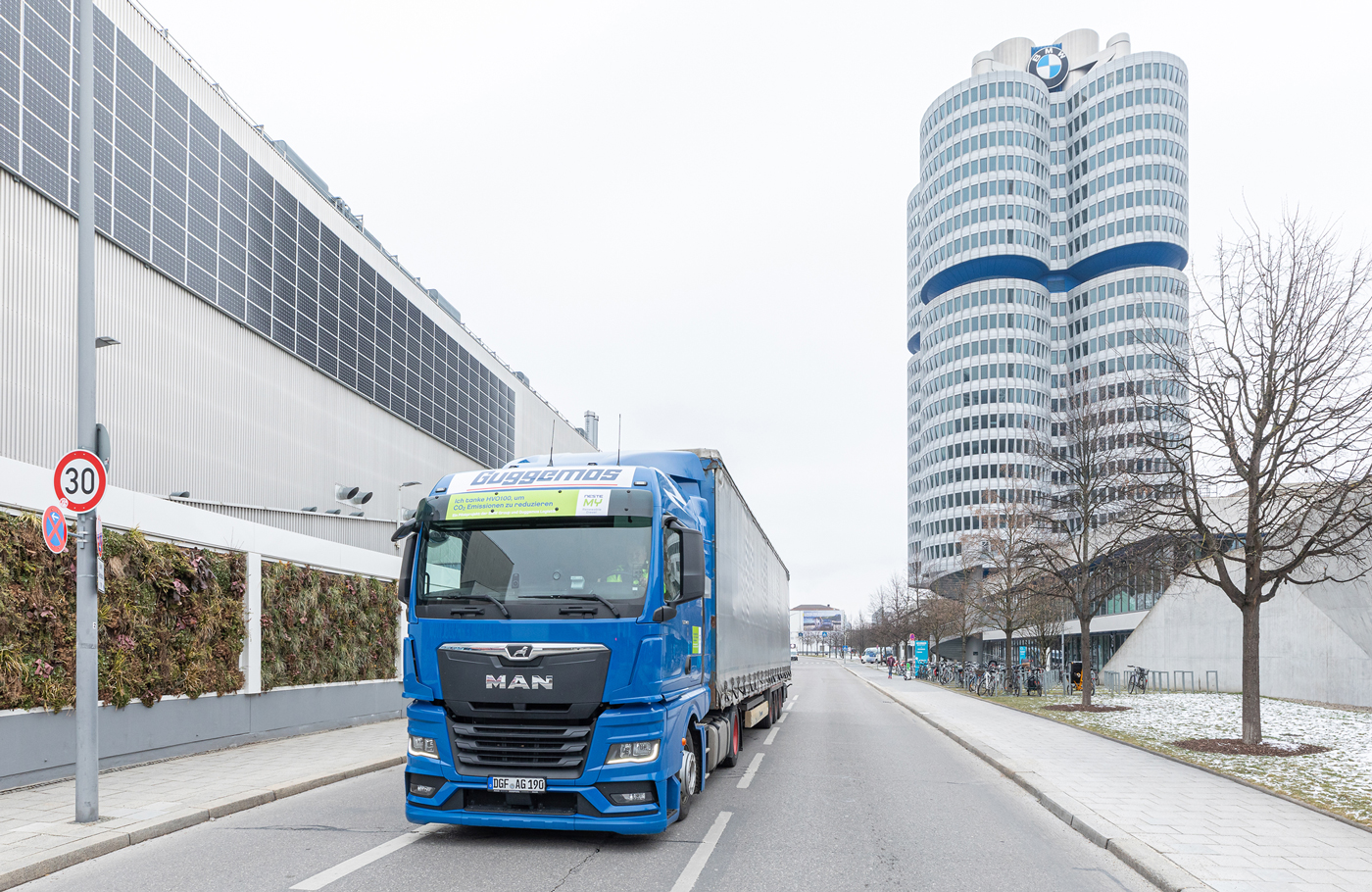F1 goes green!
F1 goes green!
DHL and Formula 1 are dedicated to a greener future! This is not just some arbitrary marketing statement; they’re taking action to minimise their carbon footprint via the introduction of trucks running on biofuel. This could reduce carbon emissions by at least 60% when compared to standard fuels.
DHL and Formula 1 are taking sustainable logistics to new heights, as DHL introduces its first truck fleet running on biofuel. The courier company will be deploying 18 new trucks this season to support Formula 1 in its goal of becoming Net Zero by 2030. The new trucks, capable of running on hydrotreated vegetable oil (HVO), will be doing duty at all European Formula 1 races in 2023. HVO is a renewable fuel made of vegetable oils, used cooking oils, residues, and animal fat.
Each truck can reduce its carbon emissions by 60% when compared to standard fuels, with great potential for higher savings. The actual saving depends on the origin of feedstock used during production, measured over a well-to-wheel cycle.
“Our partnership with Formula 1 also showcases our shared dedication to sustainability and reducing our carbon footprint. We consistently strive to make logistics more sustainable, and we are excited to introduce the inaugural fleet of trucks running on a sustainable fuel this year,” says Arjan Sissing, head of global brand marketing at Deutsche Post DHL Group. “As an industry leader in green logistics, the 18 trucks further contribute to a lower emission DHL fleet, where we show to our fans and customers that it is possible to bring the excitement of Formula 1 races around the world in a sustainable way.”
The new trucks reduce carbon emissions while maintaining the same level of performance in terms of load capacity and travel distance as their diesel counterparts. Also, the handling of biofuel is safer from an environmental and security perspective than bunkering diesel. “Each truck can therefore transport up to 40 tonnes and travel up to 3,500km per 1,000-litre tank. For the European F1 leg, the trucks run entirely on HVO100, which is a second-generation biofuel, meeting the standard EN15940 for paraffin fuels, as well as a drop-in fuel,” notes Paul Fowler, Head of DHL Motorsports Logistics.
HVO100 fuel pumps are becoming increasingly common at European filling stations, with around 1,000 already in use across Belgium, Denmark, Finland, Estonia, Latvia, Lithuania, Netherlands, Norway, and Sweden. At the same time as more operators are switching to HVO100, production is increasing, with the ambition to reach 15.5 million tonnes by 2030 from the roughly four million tonnes per year currently produced.
By using HVO100, Deutsche Post DHL Group is adhering to the EU’s Renewable Energy Directive. Due to their significant sustainability impact, DHL and Formula 1 are planning to expand the use of these sustainably powered trucks in the coming years, as part of their ongoing efforts to minimise their environmental footprint.
“We operate on a global scale and DHL plays a critical role in delivering the races and helping us address the logistical impact we have as a World Championship,” says Ellen Jones, head of Environmental, Social, and Governance (ESG) at Formula 1.
“Together we are continually looking for more sustainable solutions, and through innovations such as the biofuelled trucks we’re able to take significant steps forward in reducing our carbon emissions and achieving our sustainability goal of being Net Zero by 2030,” Jones continues. “It is wonderful to see partners like DHL share the same drive and commitment to creating a more sustainable Formula 1.”
Ensuring a more environmentally sustainable future has been a key component of the partnership between DHL and F1, who have actively taken steps to reduce their carbon footprint. This includes testing more advanced technologies for the future, leveraging multimodal transport solutions including overland and ocean freight, and using more Boeing 777 aircraft, which reduce carbon emissions by 18% compared to the 747.
DHL also equips its trucks with GPS to monitor fuel consumption and optimise routes. This season, the DHL motorsport team will cover around 150,000km, transporting up to 1,400 tonnes of freight per race. In addition to the race cars, tyres, spare parts, and fuel, broadcasting and hospitality equipment are all transported to the desired destination. DHL also provides comprehensive track and trace of the cargo while in transit, as well as custom brokerage, pickup, and customs clearance services.
As part of Deutsche Post DHL Group’s Sustainability Roadmap to accelerate sustainable business by 2030, the company is investing €7 billion in clean logistics operations to reduce emissions. The funds will focus on sustainable aviation fuels, road fleet electrification, and climate-neutral building design. The introduction of sustainable fuels on long-haul road transport is also included in this investment plan.

HVO100: ALSO ON TEST AT BMW
DHL isn’t the only German company that’s using HVO100. Four trucks owned by logistics provider Guggemos are travelling between BMW’s Munich plant and Landau an der Isar, about 120km to the northeast, several times a day.
Their green stickers proclaim the trucks’ eco-credentials: “Ich tanke HVO100, um CO2 -Emissionen zu senken” (Translated literally: “I tank with HVO100 to save CO2 emissions”).
Delivering supplies just in time from Landau to the home plant in Munich, the trucks have been running on renewable HVO100 diesel since December 2022. It’s all part of a one-year pilot programme to trial the new fuel.
In March 2023 the HVO100 test fleet was expanded to include another six trucks, this time belonging to DB Schenker. These commute between the BMW Group Supply Centre in Eching, just north of Munich, to its plant in the city, to deliver warehouse parts for production – a round trip of a good 40km each time.
Published by
Focus on Transport
focusmagsa



